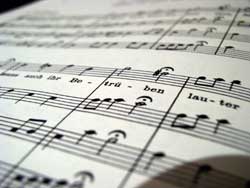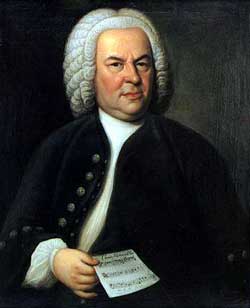|
|
|
 A chorale by J.S.Bach
 Johann Sebastian Bach in 1748
 Domenico Scarlatti in 1738
Related resources:
The contents, views and opinions in this article are those of its author.
|
|
User comments:
|
 The basis of the "barroque" definition can found in the lifestyle of this period... poetry, paint and the other arts... everything are barroque!!!
And it's correct to make a sub-divission for this period, but we can't to force the definition in the base of "150 years are many years"... what about the Middle Age?... 1000 years are many years too?
Greats for this article!!! The basis of the "barroque" definition can found in the lifestyle of this period... poetry, paint and the other arts... everything are barroque!!!
And it's correct to make a sub-divission for this period, but we can't to force the definition in the base of "150 years are many years"... what about the Middle Age?... 1000 years are many years too?
Greats for this article!!! |
Posted by laloego on February 8th, 2006 @ 2:15 pm GMT |
|  Very well done Silvia! Very well done Silvia! |
Posted by AllegroConFuoco on February 6th, 2006 @ 3:52 pm GMT |
|
|
|
|
|
|
|